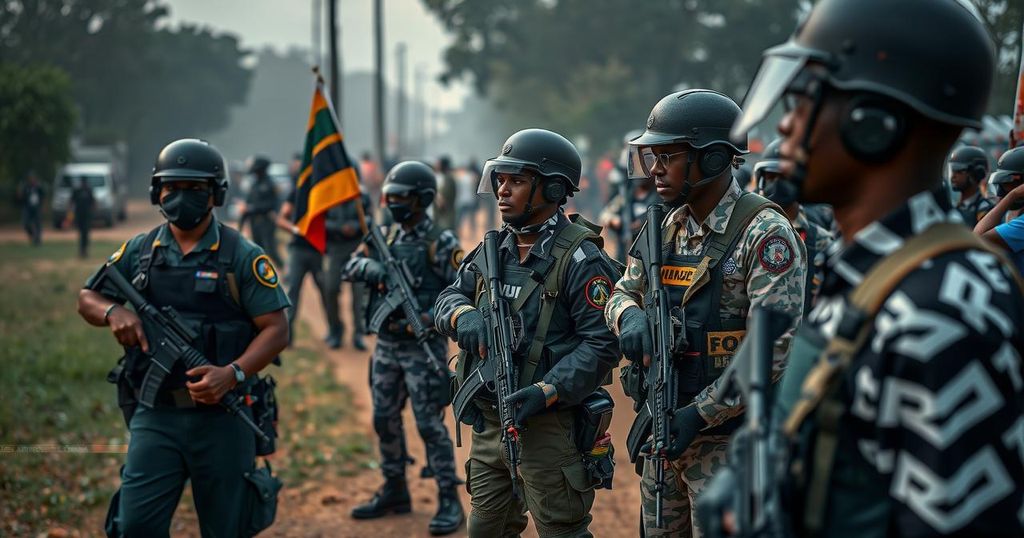Tragic Assassinations of Opposition Officials in Mozambique Heighten Election Tensions

Gunmen in Mozambique have assassinated two officials from the opposition Podemos party, fueling tensions before protests against disputed election results. The victims, Elvino Dias and Paulo Guambe, were shot in Maputo as they awaited the publication of election outcomes that have been marred by allegations of vote irregularities. This incident highlights the broader issues of political suppression and violence that opposition parties face in Mozambique’s democratic processes.
In Mozambique, two prominent opposition officials affiliated with the Podemos political party have been tragically killed, further exacerbating tensions in the nation ahead of scheduled protests against contested election results. Elvino Dias, the party’s legal representative, and Paulo Guambe, a party official, were shot dead late Friday night in the capital, Maputo, after their vehicle was pursued by assailants. Eyewitness accounts included videos depicting the aftermath, where their car was visibly damaged with bullet holes, and reports indicated multiple gunshots had been fired, causing immediate fatalities. The killings occurred in a climate already charged with anxiety as the nation awaits election results following the October 9 vote, where allegations of rigging and repression have been rampant against the ruling Front for the Liberation of Mozambique (Frelimo) party, which has maintained power for the past 49 years. Podemos has contested the preliminary results that favor Frelimo and has called for a nationwide strike in response. Furthermore, claims from opposition parties, including accusations from Western electoral observers, highlight concerns regarding electoral integrity, such as vote-buying and intimidation. The Frelimo party, along with its presidential candidate Daniel Chapo, is expected to officially win in all eleven provinces, despite the ongoing unrest and dissatisfaction expressed by the opposition. Previous experiences with political dissent have shown that security forces may resort to violent measures, raising fears for the safety of protestors slated to gather after the election results are released. Human rights organizations have echoed this sentiment, declaring the killings a clear indication of the erosion of justice within Mozambique’s political landscape. Adriano Nuvunga, the director of the Center for Democracy and Human Rights, characterized the incident as a political assassination, reiterating the severe implications it holds for democratic processes within the country. These events underscore the urgent need for a commitment to political reform and respect for human rights in Mozambique’s tumultuous political environment.
The political atmosphere in Mozambique remains perturbed as it transitions towards a democratic framework initiated in 1994 after a prolonged period of one-party rule. The ruling party, Frelimo, has faced continuous scrutiny over its electoral practices, particularly accusations of undermining democratic norms through methods such as electoral fraud and suppression of dissent. The opposition party, Podemos, has emerged as a critical voice against these practices, particularly in light of the recent election held on October 9, which has been tainted with allegations of irregularities. The context for the recent violence includes long-standing tensions between the ruling party and opposition factions, combined with significant socio-economic issues such as insecurity and drought-induced famine, further complicating the already volatile situation as the nation approaches the announcement of final election results due on October 24.
The recent assassination of two opposition officials in Mozambique ahead of anticipated protests highlights the ongoing perils faced by dissenters in an increasingly oppressive political environment. As the ruling party prepares to declare victory in a contested election, the fear of violence against protestors looms large, raising pressing questions about the future of democratic integrity in the country. The international community, along with local human rights organizations, must remain vigilant in monitoring the unfolding events as Mozambique grapples with its complex political landscape, advocating for justice and democratic reforms.
Original Source: www.aljazeera.com




